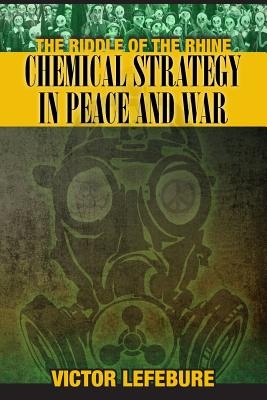
- We will send in 10–14 business days.
- Publisher: Westphalia Press
- Year: 2013
- Pages: 302
- ISBN-10: 1935907557
- ISBN-13: 9781935907558
- Format: 15.2 x 22.9 x 1.7 cm, minkšti viršeliai
- Language: English
- SAVE -10% with code: EXTRA
The Riddle of the Rhine (e-book) (used book) | bookbook.eu
Reviews
Description
Victor Lefebure (1891-1947) earned his bachelor's at University College London in 1911 and began a research and teaching career at Wye College before being called to the colors in the 3rd Essex Regiment in 1915. He was seconded to the Special Brigade of the Royal Engineers that was developing chemical warfare to be use against the Germans. He worked with the French forces and they carried out a number of successful attacks, notably at Nieuport on October 5, 1916. After the war he became a successful businessman and the inventor of a number of building materials. This book about chemical warfare became basic to the subject's history. But the gas attacks troubled him and in 1931 he wrote Scientific Disarmament, with introductions by such luminaries at Lloyd George and H.G. Wells. There he wrote, "Is it illogical or disloyal for technical men who have fostered armament in a previous national emergency, and might do so again, to take the initiative in the direction of disarmament? These questions have inevitably pursued me in writing this book, for the old loyalty to organisations and friends of the War must remain to the end. I can only say that it must be the first objective of any sane person who has seen war, to try to prevent the kind of catastrophe which engulfed the world in 1914. The deciding factor is surely this, the obligation to another generation which might again be sacrificed. If sane disarmament can assist, and if armament knowledge is an essential part, then this obligation falls upon those who possess it. Their contribution is essential, and it is because the scruples which pursued me in breaking new ground will also pursue them that I make these comments."
- Publisher: Westphalia Press
- Year: 2013
- Pages: 302
- ISBN-10: 1935907557
- ISBN-13: 9781935907558
- Format: 15.2 x 22.9 x 1.7 cm, minkšti viršeliai
- Language: English English
Victor Lefebure (1891-1947) earned his bachelor's at University College London in 1911 and began a research and teaching career at Wye College before being called to the colors in the 3rd Essex Regiment in 1915. He was seconded to the Special Brigade of the Royal Engineers that was developing chemical warfare to be use against the Germans. He worked with the French forces and they carried out a number of successful attacks, notably at Nieuport on October 5, 1916. After the war he became a successful businessman and the inventor of a number of building materials. This book about chemical warfare became basic to the subject's history. But the gas attacks troubled him and in 1931 he wrote Scientific Disarmament, with introductions by such luminaries at Lloyd George and H.G. Wells. There he wrote, "Is it illogical or disloyal for technical men who have fostered armament in a previous national emergency, and might do so again, to take the initiative in the direction of disarmament? These questions have inevitably pursued me in writing this book, for the old loyalty to organisations and friends of the War must remain to the end. I can only say that it must be the first objective of any sane person who has seen war, to try to prevent the kind of catastrophe which engulfed the world in 1914. The deciding factor is surely this, the obligation to another generation which might again be sacrificed. If sane disarmament can assist, and if armament knowledge is an essential part, then this obligation falls upon those who possess it. Their contribution is essential, and it is because the scruples which pursued me in breaking new ground will also pursue them that I make these comments."


Reviews